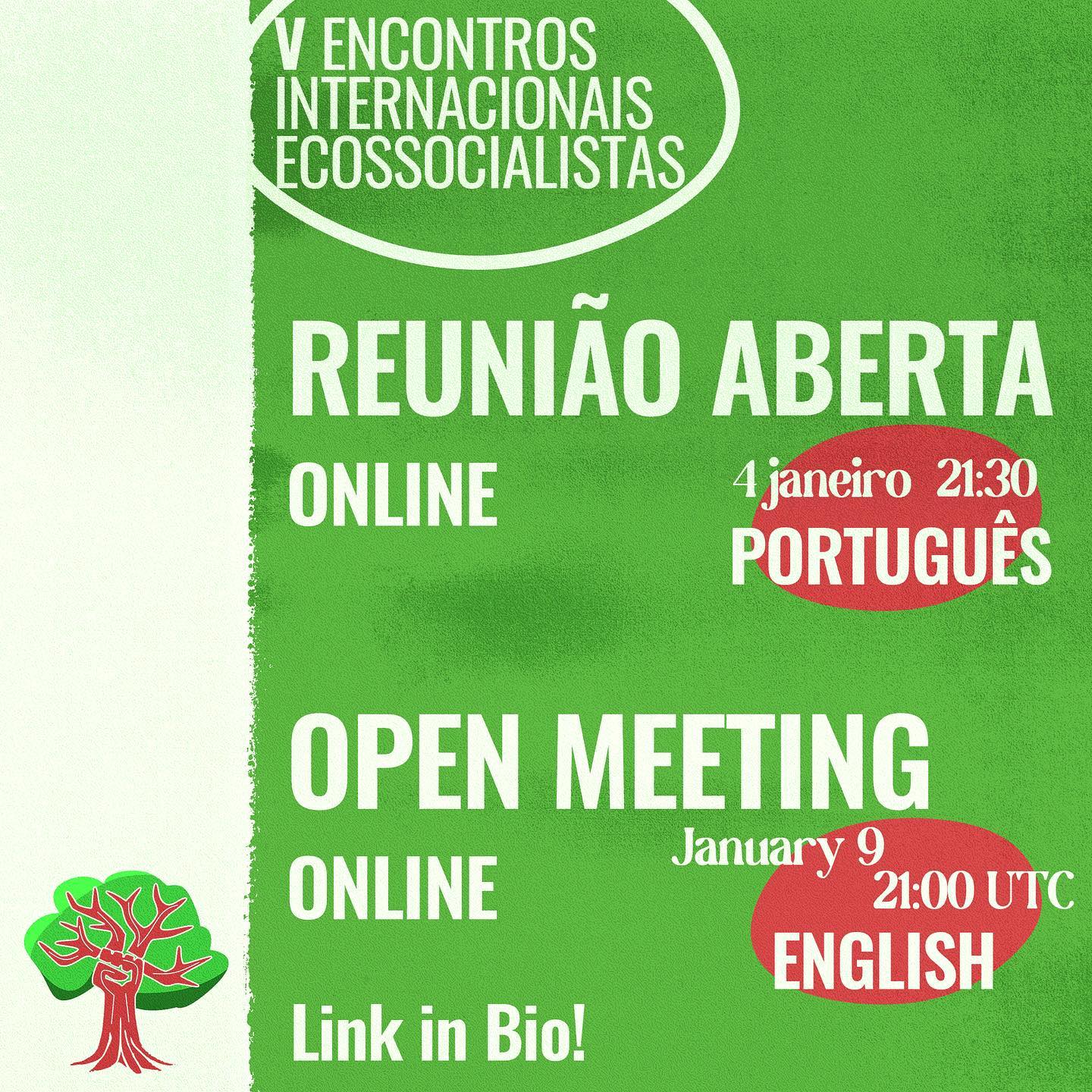The ecosocial crisis has and will have a direct and profound in the working and living conditions of the working class. We are in a ecosocial crossroads, changes are not an option but a fact, and now we have the challenge to dispute the direction of these changes: a direction lead by the green capitalism or ecofascism that will plunder, impoverish and abandon the working class and territories; or a direction represented by an ecosocialist alternative that will be built from and for the working people and the territories.
The unions work hand by hand with many working people, in concrete day-to-day struggles. These struggles as well as changing the working and living conditions of the working class, they also change the working people ourselves ideologically and in terms of self-consciousness and empowerment. This places us in front of the commitment to confront the hegemonic discourse of green capitalism and that of pedagogy and ideological struggle in favor of an ecosocialist alternative. But at the same time, it places us in a position of great potential.
This will not be a challenge without contradictions. Facing the ecosocial crisis will need a degrowth and a deep transformation in many productive sectors, a radical transformation of the productive and reproductive matrix of our societies and the global system. Unions (specially in the Global North) have historically linked our struggle to demands of the world of the employment linked to a welfare system associated with the hegemonic productive and reproductive system of the capitalism. A system that is ecologically unsustainable, and that is based on the exploitation and colonial plunder of bodies and territories crossed by different types of violence. A system we want to change. This will lead to the destruction of thousands of jobs (paradoxically, especially in unionized sectors), so we will have to face the contradiction between defending the working class interests and material living condition (immediate interests) and promoting the ecologically necessary transformation by creating disaffection to the current system (strategical interests). The energy transition, the transport transition, soil, agriculture, forestry, construction, all will require the creation of an enormous amount of jobs and public investment, which need to be planned as a social and political plan by and for the working class. Probably we need to rethink our historical claims. How can we face this contradiction? How do we face this challenge?
Furthermore, speaking of transforming the productive and reproductive matrix, should we think about articulating struggles beyond the sphere of employment? How to give value to works, activities and jobs that are essential for the maintenance of life and that are now undervalued? Which kind of alliances do we need to do so?
Answering: Who?
Organized by: Global Climate Jobs, LAB Sindikatua, ESK Sindikatua and STEILAS
Special guests: Iñigo Antepara, Endika Pérez, Iratxe Delgado, Jonathan Neale, Leonor Canadas
